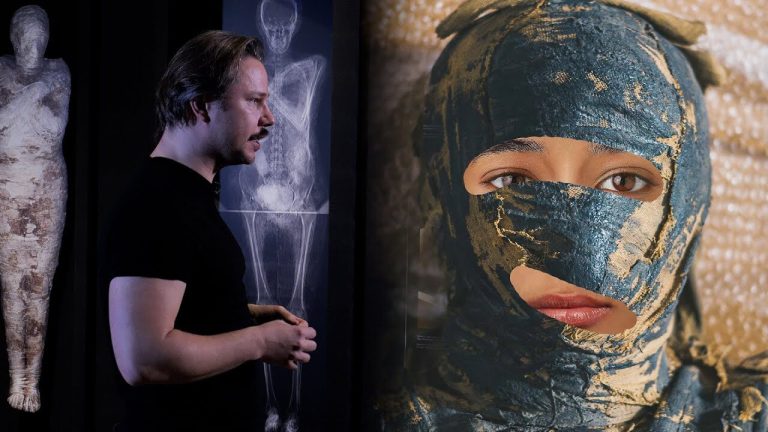Blockchain and NFT. There are places where these technologies have been used in science

Although blockchain-based cryptocurrencies are associated primarily with multiplying capital through risky transactions, this technology also has many other applications. There are universities that use them to track the achievements of students. Even employers can benefit from it.
The technological progress of the first two decades of the 21st century led to the dissemination of the so-called virtual currencies, including cryptocurrencies. Having both a group of their supporters and opponents, the instruments are used e.g. for investment purposes, or as a capital investment, and they are primarily associated with such areas. One of the key features of these assets is that they act as a means of exchanging value between the issuer and the user.
Importantly, this value does not necessarily have to be directly related to the multiplication of funds. This value can also be information, in particular the possibility of its safe storage, verification of authenticity and many others.
What is blockchain technology?
However, to use it in practice, it is necessary to know the principles of blockchain technology, which remains inseparable from cryptocurrencies. Blockchain is a specific chain of blocks containing a packet of encrypted information about transactions, as well as about the counterpart preceding them. Each block consists of a timestamp, transaction data and a cryptographic hash of the content (hash). The fact that each unit is built on the basis of the previous one results in a database whose elements cannot be deleted or modified. In other words, it is a land and mortgage register with chronologically written transactions between users.
An important advantage of the blockchain over the land and mortgage register is its decentralization. The system does not create one central unit, but each user has an identical copy of the database. This makes the blockchain resistant to cyberattacks as hackers would have to access multiple accounts simultaneously. In this secure way, you can send any information stored in digital form, e.g. regarding patents or copyrights.
This is what blockchain technology is used for in science
Alex Grech and Anthony Camilleri from the University of Malta in the work entitled Blockchain in Education draw attention to a number of applications of this technology in science. Among them, they mention the possibility of verifying students’ achievements, examining the teacher’s competence, the learning process, as well as meeting certain quality criteria by the course. All by collecting data in a decentralized database.
The first school that decided to use blockchain technology to document the achievements of its students is the Holberton School of Software Engineering, based in San Francisco. Sony has also been working on a system that collects data on education for years. The technology giant wants to use blockchain to store data on academic degrees, certificates and diplomas in cooperation with teaching units.
“Blockchain thus becomes an important step towards cost optimization”
“Under normal circumstances, tracking student achievement with available tools can be laborious and costly. Blockchain is thus becoming an important step towards cost optimization, security and transparency,” says Dr. Eng. Dariusz Dudek from the Częstochowa University of Technology.
It turns out that storing data on the education process and professional path in decentralized databases can become useful for the employers themselves. The American company HireRight conducted research on the veracity of information included in the CV. It has been found that up to 85% of people stretch reality to their advantage, trying to show their best side. If the recruiter does not catch such a lie on time, the company can count on losses reaching tens or even hundreds of thousands of zlotys.
What is NFT and where can it be used?
The applications of blockchain technology do not end there. There is also considerable potential in NFT (non-fungible token), i.e. a unique digital data unit in the form of a cryptographic token. Each of them has a characteristic and unique identifier that distinguishes it from the others. It is proof of authenticity and ownership.
To understand the principle of their operation, it is worth using an example. PLN 10 in the wallet equals PLN 10 in the bank account. These denominations are interchangeable because they are determined by their value, not uniqueness. It is the opposite in the case of NFT – it has no equivalent, but we can buy it for a certain amount, designated by the seller, or have as proof of authenticity, the fact that something belongs only to us.
This last feature was noticed by The EU Blockchain Observatory and Forum, which draws attention to the possibility of using technology in the healthcare sector. The report “Blockchain Applications in the Healthcare Sector” points out that the growing need for knowledge distribution and data exchange has increased the demand for tools that improve coordination and improve the functioning of healthcare systems.
Genetic profile in NFT. Now it’s possible
However, as the authors of the report write, healthcare organizations are usually slow to implement new technologies, and although blockchain is not intended to meet every challenge, thanks to features such as decentralization and reliability, it can be used in this sector.
The Californian company Nebula Genomics went much further in its forecasts. Its co-founder, genetics professor George Church of Harvard Medical School, plans to auction his genetic profile in the form of NFT. Tuan Cao, CEO of the Vietnamese company Genetica, which deals with recording the genome using non-fungible tokens, says the method will give patients control over the privacy of their data. – Everyone’s genetic profile is unique and should be represented by NFT. GeneNFT is a symbolic property of genetic data, he argues.
While the genome record in NFT form is a song of the future, the full implementation of blockchain technology in healthcare could make it the patient’s decision whether to grant access to medical records to healthcare providers, researchers or insurance companies. In addition, blockchain can be used to track and authenticate the results of clinical experiments and scientific research. This, in turn, will make it easier to check the source of the data, which translates into their credibility and possible use by other scientific units.
What is Decentralized Science (DeSci)?
However, the latter have limited access to them. Borrowing a scientific work for two days is often a cost of several dozen zlotys. In addition to the financial aspect, there is the issue of time devoted to applying for grants. Decentralized science (DeSci) meets these difficulties (at least in the assumption of the creators).
Behind DeSci is a movement that aims to build a public infrastructure to fund, create, review, credit, store and disseminate scientific knowledge. This is helped by the DAO (Decentralized Autonomous Organization), which is a community-led organization that allows members to vote on the direction in which their entity is heading.
Its activity can be compared to crowdfunding, i.e. crowdfunding. The project, which gained proper trust and convinced investors, is financed from a large number of small, one-off payments made by people interested in the project.
The creators of DeSci argue that the project aims to create an ecosystem where scientists are encouraged to openly share their research and receive recognition for their work, while allowing everyone to easily access and participate in research.
The technology has been used in Cyprus for years
However, these technologies are not currently used at Polish universities. “The Warsaw University of Technology does not use blockchain technology to verify academic achievements. The decentralized science model has not been implemented either,” informs the communication and promotion office of the university. It is similar at the Opole University of Technology. The research facility said it was using “other methods” for this purpose.
The situation is slightly different abroad. The University of Nicosia, Cyprus (UNIC) monitors student achievement using blockchain technology. In addition, the university is the first to accept Bitcoin currency for tuition in any degree program. This year, a three-semester interdisciplinary program is launched that allows you to defend your master’s thesis in the area of metaverses.
Although this technology has been known for years and is still developing, it has not gained much popularity. However, some enthusiasts argue that blockchain can change the future of education and become the basis for creating an open and transparent teaching system.






